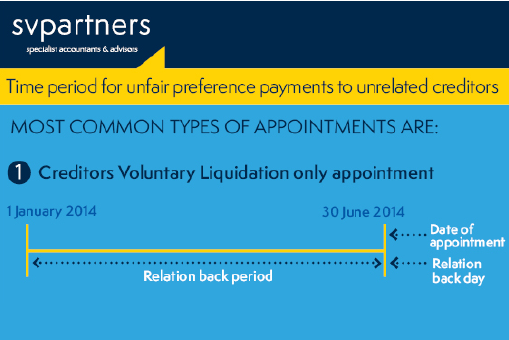
These are the five elements of a preference action. It authorizes the trustee to avoid a transfer if five conditions are met. Subsection (b) is the operative provision of the section. Inventory, new value, and receivable are defined in their ordinary senses, but are defined to avoid any confusion or uncertainty surrounding the terms. Subsection (a) contains three definitions. It modernizes the preference provisions and brings them more into conformity with commercial practice and the Uniform Commercial Code. This section is a substantial modification of present law. However, for purposes of the “ordinary course” exception to the preference rules contained in section 547(c)(2), the House amendment specifies that the 45-day period referred to in section 547(c)(2)(B) is to begin running, in the case of taxes from the last due date, including extensions, of the return with respect to which the tax payment was made. Preferences: The House amendment deletes from the category of transfers on account of antecedent debts which may be avoided under the preference rules, section 547(b)(2), the exception in the Senate amendment for taxes owed to governmental authorities. In the event the debtor goes into bankruptcy within a short time after the bulk sale, the trustee should not be able to use the avoiding powers under section 544(a)(1) or 547 merely because State law has made some transfers of personal property subject to the rights of a creditor on a simple contract to acquire a judicial lien with no opportunity to perfect against such a creditor. Since the purchaser cannot perfect against such a creditor on a simple contract, he should not be held responsible for failing to do the impossible. For example, a purchaser from a debtor at an improperly noticed bulk sale may take subject to the rights of a creditor on a simple contract of the debtor for 1 year after the bulk sale. It is intended that the simple contract test used in this section will be applied as under section 544(a)(1) not to require a creditor to perfect against a creditor on a simple contract in the event applicable law makes such perfection impossible. Section 547(e)(1)(B) is adopted from the House bill and Senate amendment without change. The exception for a lien created under title 11 is deleted since such a lien is a statutory lien that will not be avoidable in a subsequent bankruptcy. The exception relating to satisfaction of a statutory lien is deleted. Section 547(c)(6) represents a modification of a similar provision contained in the House bill and Senate amendment.


Section 547(c)(6) of the House bill is deleted and is treated in a different fashion in section 553 of the House amendment.

Payment is considered to be made when the check is delivered for purposes of sections 547(c)(1) and (2).

As provided, section 106(c) of the House amendment overrules contrary language in the House report with the result that the Government is subject to avoidance of preferential transfers.Ĭontrary to language contained in the House report, payment of a debt by means of a check is equivalent to a cash payment, unless the check is dishonored. Section 547(b)(2) of the House amendment adopts a provision contained in the House bill and rejects an alternative contained in the Senate amendment relating to the avoidance of a preferential transfer that is payment of a tax claim owing to a governmental unit. Section 547(c)(2) protects most payments. No limitation is provided for payments to commodity brokers as in section 766 of the Senate amendment other than the amendment to section 548 of title 11.


 0 kommentar(er)
0 kommentar(er)
